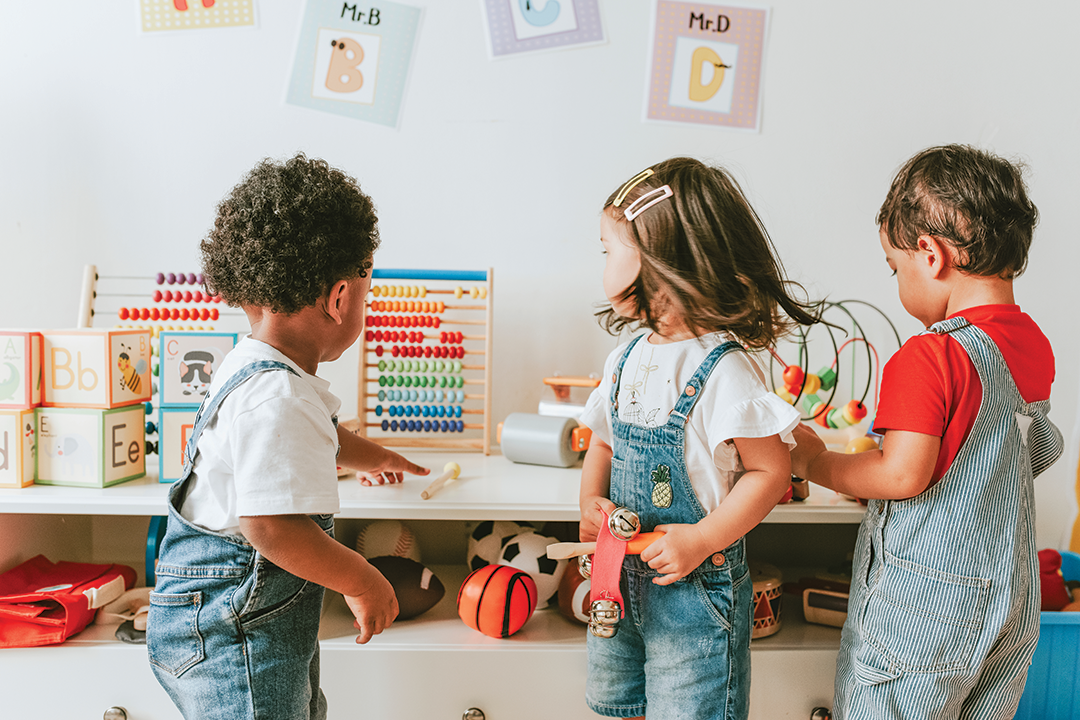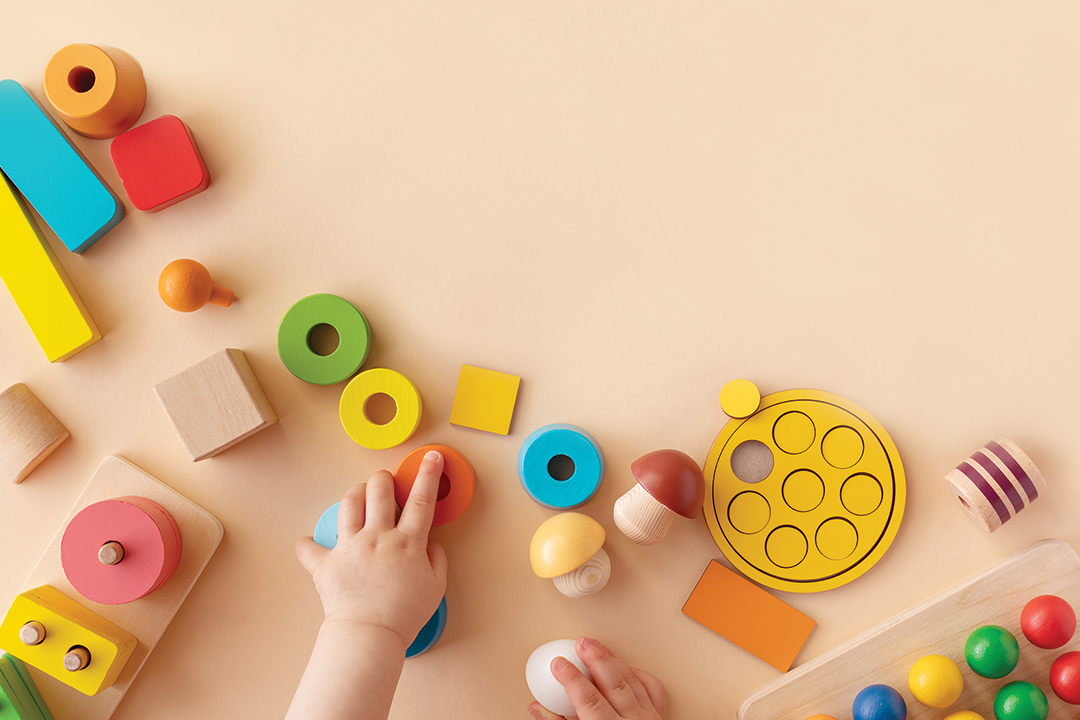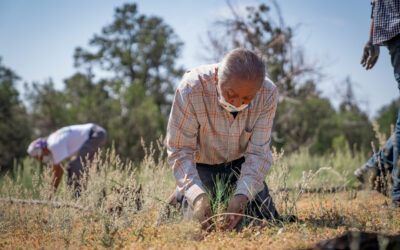When Jean Kirshner teaches future educators about early childhood development, she likes to have them lie on their backs and take note of what they can see. Then she has them sit up and look around.
“Look how much more is coming into your head,” she tells them. “You’re processing so much more from laying down to sitting up.”
She then tells them to stand and walk across the room. That experience, she says, is a game-changer for little ones.
Kirshner likes this exercise because it helps her illustrate what she calls the “cognitive explosion” toddlers experience when they learn how to walk. It also helps her students understand the impact of carrying an infant.
“Every time you pick them up and walk around with them, you are changing what they see and hear,” she says.
Kirshner is an assistant professor at the University of Northern Colorado’s School of Teacher Education and serves as the early childhood education program coordinator. Before transitioning to UNC, Kirshner worked in early childhood education for 27 years as a kindergarten and first grade teacher.
Early childhood experiences are the foundation of everything, she says. Quality education during this stage of development, ages 0-8, can have a profound impact on a child’s life trajectory.

Impacts on social and emotional development
According to Harvard University’s Center on the Developing Child, babies form more than a million new neural connections every second during their first few years of life. Basics, such as vision and hearing, develop first, then language and higher cognitive functions follow.
Emotional well-being and social competence support those early cognitive abilities, according to Harvard, just as stress or neglect can negatively impact the developing brain. During early childhood, kids develop the tools to navigate social situations, solve problems and self-regulate. They will carry these tools with them for the rest of their lives, Kirshner says.
Infants (the age range from birth to 1 year old) learn how to communicate and connect with others on a basic level, she says, which helps them develop a sense of having the capacity to impact their world. Early childhood educators support this by responding to an infant’s cues, which usually looks like the child crying and their teacher responding to that cry with comfort, feeding or a diaper change. This response teaches the child that they can trust their world and the people in it as well as their ability to be heard.
As infants grow into toddlers and enter their preschool years, they get to practice communicating their desires and puzzling out how to solve conflict. Lisa Hopkins, executive director of The Learning Experience in Fort Collins, says one of the biggest benefits of early childhood education before kindergarten is socialization.
“The pros of being in a large childcare center are being around a whole bunch of children and learning to regulate emotions when a bunch of other kids want the same red block,” she says.
Hopkins says she’s seen more behavioral issues, or “big feelings,” expressed by young children since the COVID-19 pandemic, especially among kids who spent their earliest years in isolation.
“They didn’t have that foundation because they were at home,” she says. “They had no one to fight with.”
Finding the right fit
According to the National Education Association, children who receive high-quality education before they turn 5 are more prepared academically for later grades, have a higher likelihood of graduating high school and tend to become higher earners in the workforce. However, different families choose different paths.
Traditional early childhood education centers like The Learning Experience often focus on language, literacy, art and socialization. The Learning Experience also teaches Spanish and Mandarin using fun mascots such as Gibby the monkey and Bubbles the elephant to help bring learning to life.
Another popular and sometimes more affordable option is a home-based childcare provider. They often focus on the same areas of learning, though they may take a different approach, such as learning within a specific environment.
Stacey Carpenter, owner of Foundations Family Childcare in Greeley, has been a licensed, home-based childcare provider for 20 years. She got her start when she had her own children and tried to go back to work but couldn’t find the kind of childcare she wanted.
“My goal has always been to be the provider I couldn’t find for another family,” she says.
While home-based childcare can be more flexible and personalized, providers are still held to a standard, she says, especially those that provide Universal Pre-K. Foundations Family Childcare is a Universal Pre-K provider, and Carpenter adheres to a state-approved curriculum.
For families looking to find the right fit, Kirshner recommends Colorado Shines, a website that lists ratings for licensed childcare providers across the state.
“Scores are based on a variety of things, including how responsive caretakers are and how clean things are,” she says.
In addition to looking at the score, look at how other children are doing in the program, Kirshner says. She suggests considering these questions: Children cry, of course, but what happens when they do? Do they have some agency? Are they safe? Do the children appear joyful? Is the center the kind of place you could spend a few hours and find it beautiful?
_________________________________________________________________
How to Support Early Childhood Learning at Home
Journal. Boost linguistic capacity and cognitive processing of beginning, middle and next concepts by creating a journal for your child. Have them draw a picture and summarize what they did that day with basic supplies such as crayons or colored pencils. This is an activity you can do in the moment or at the end of the day.
Take trips. Adventures don’t have to be big or expensive; your child will learn something whether you take them to the library, the pool or Italy. This is true even when they are too young to remember the activity, Kirshner says. They’ll remember the foundational ways of approaching and exploring the world.
Encourage play. Children learn social skills and develop higher cognitive functions through play, which leads to improved literacy and more, Carpenter says. That play is more meaningful when it’s set up by a child, so let them take the lead.
Participate in the curriculum. The Learning Experience shares its curriculum with parents through an app so that they can keep up with what their child is learning. Parents can supplement the lessons at home and help their kids navigate technology with the center’s Bubbles and Friends YouTube channel.
Spend quality time together. The number of books you read to your child this week is not nearly as important as communicating to your child that they are loved, Kirshner says.







